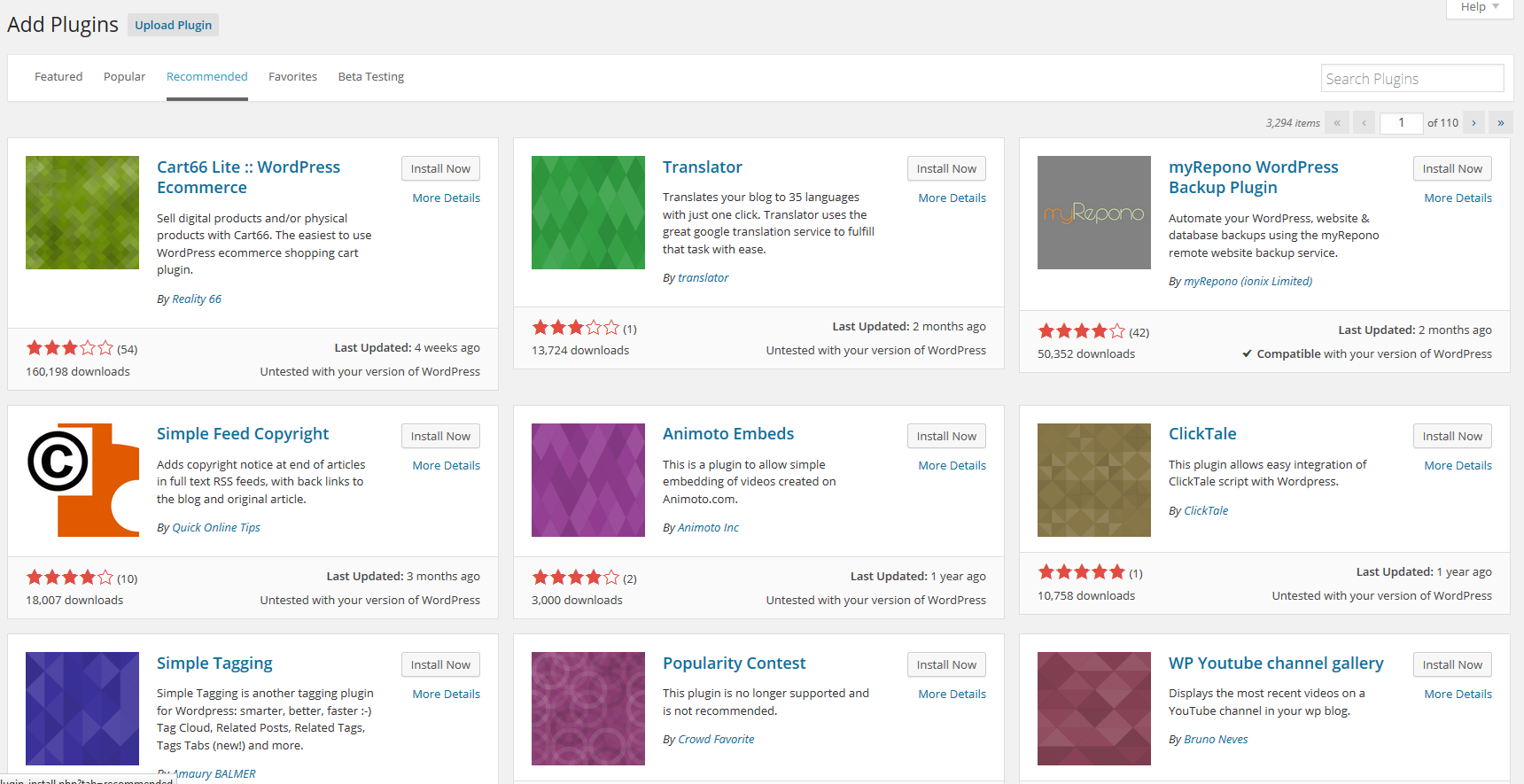On the Add New plugin page in WordPress 4.0, there are two different tabs to help users discover new plugins: Featured and Popular. What if WordPress could recommend plugins based on the ones you have installed? Thanks to a recent update to the API, users will be able to access a list of recommended plugins in WordPress 4.1.

The recommendations take into account the plugins you have installed and suggests plugins based on which ones are commonly used together. It’s similar to an e-commerce shopping cart that recommends products other customers have purchased based on what’s in the cart.
Recommended Plugins To Get its Own Tab
In today’s WordPress 4.1 developer meeting, the group reached a consensus to create a new tab for Recommended plugins instead of replacing the Popular tab. I’m in favor of this decision because they each have a different definition. Also, the Popular tab shows which plugins are doing well across the directory. Another benefit to keeping the Popular plugins tab is for fresh installs of WordPress, as it gives users a good foundation to start looking for plugins.
In my tests, I noticed that some of the plugins recommended to me are 5-8 years old. I’ve reported the behavior to Alex Shiels and it will be addressed before 4.1 ships. If you are testing WordPress 4.1 and come across any oddities with plugin recommendations, please report them in the ticket.
The Recommended plugins tab exposes new and useful plugins to users instead of limiting them to the Featured and Popular categories. Since recommendations are based on actual data, they should get better as time goes on. Do you think a recommended plugins page is a useful addition to the plugin discovery process? Let us know in the comments.
Recommended plugins is based on a good algorithm could be great, but I’m not a fan of adding another menu item for it in the Dashboard menu vs. simply incorporating it on the Add New page.
Now there will be Featured Plugings, Popular Plugings and Recommended Plugins? Seems like 2 too many IMO.